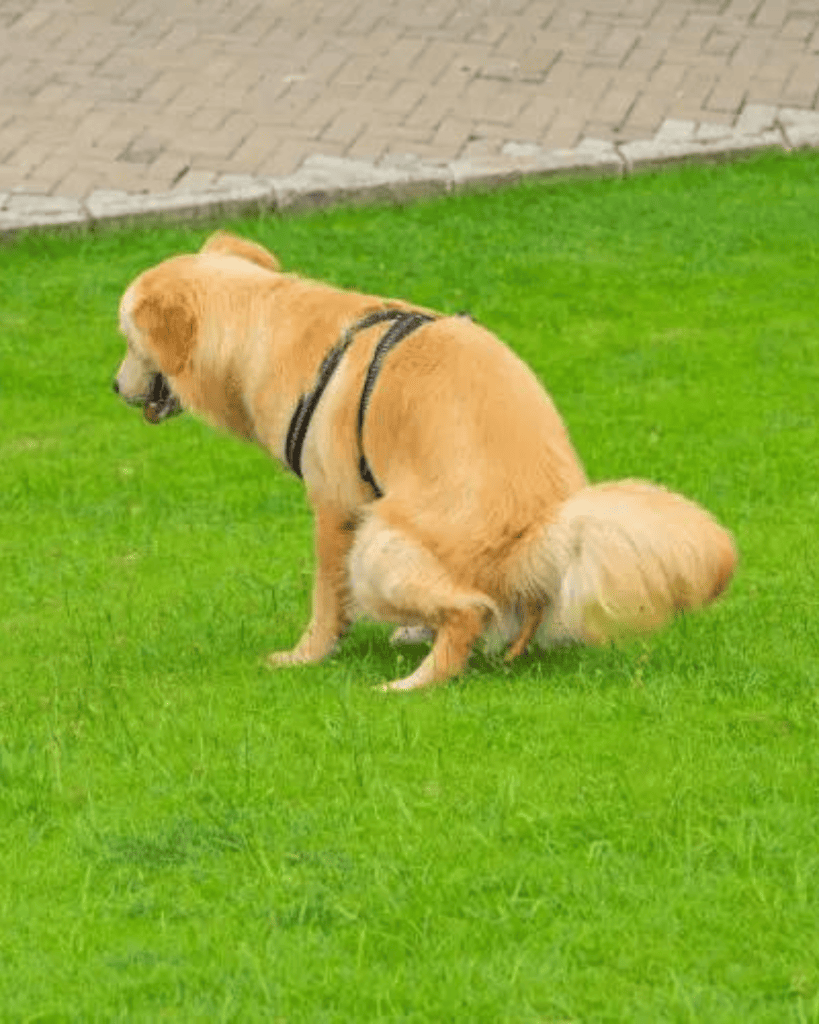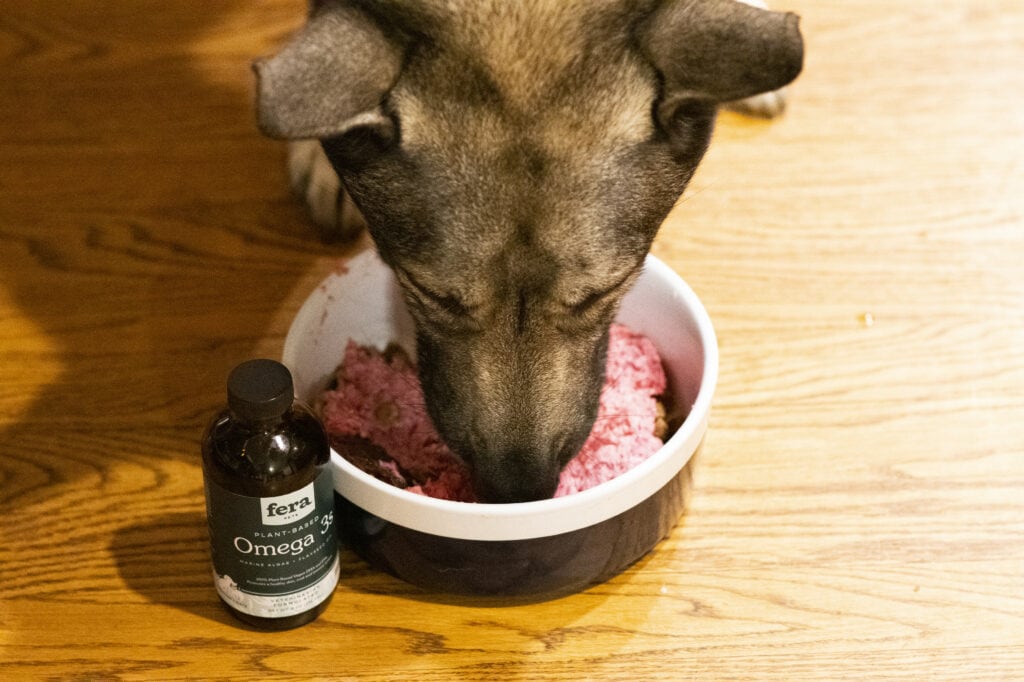Is Puppy Poop Supposed to Be Soft? Understanding Your Puppy’s Digestive Health
By admin / December 27, 2023 / 1 Comment / Uncategorized
Have you ever wondered why monitoring your puppy’s poop is essential for assessing its overall health? As a dog owner, understanding the characteristics of healthy and abnormal bowel movements can be crucial in detecting potential health issues early on. This guide delves into the nuances of a puppy’s digestive system, offering insights into what puppy poop can tell us about their well-being and how diet, health, and lifestyle affect their gastrointestinal tract.
Understanding Normal Puppy Poop
Healthy dog poop, especially in puppies, should be consistent in size and shape, resembling a firm, segmented piece, similar to the consistency of soft-serve ice cream. The color typically ranges from chocolate brown to a rich, earthy tone. Regular monitoring helps pet parents understand what’s normal for their pup, making it easier to spot any concerning changes. There’s a notable difference in the bowel movements of puppies and adult dogs.
Puppies, often on a diet of soft, wet food or a transition to dry food, may have softer stools compared to adult dogs on a more solid diet. Young puppies also tend to defecate more frequently due to their smaller digestive tracts and the need to process food quickly for rapid growth, and their needs may even change as their development phases happen, such as teething.
The gastrointestinal tract plays a vital role in the digestion and absorption of nutrients. A puppy’s stool is a direct reflection of the health of its GI tract. The small intestine absorbs nutrients, while the large intestine forms the stool. Any imbalance or disturbance in the GI tract, from the mouth to the large intestine, can result in changes in the consistency, color, and frequency of your puppy’s poop.

Factors Influencing Poop Consistency
1. Diet and Its Effects: The most common reason for changes in a puppy’s poop consistency is its diet. Introducing new food, a sudden change in diet, or dietary indiscretion (eating something they shouldn’t have) can lead to soft or loose stools. Puppies with food allergies or intolerances may also exhibit symptoms like diarrhea or soft poop.
2. Impact of Solid Food and Overfeeding: As puppies grow, the transition from mother’s milk to solid food can temporarily result in softer stools. Pet owners need to introduce new foods gradually to avoid upsetting the puppy’s stomach. Additionally, feeding too much food or human foods not suitable for dogs can lead to soft or watery stools.
3. Intestinal Parasites and Infections: Intestinal parasites, common in young puppies, can cause soft, runny, or even watery diarrhea. Viral and bacterial infections in the gastrointestinal tract also lead to changes in stool consistency. Signs of these infections might include loose stools accompanied by mucus or blood, indicating a need for immediate veterinary attention.

Health Concerns Linked to Soft Poop
Consistently soft poop can be a sign of underlying health problems. Conditions like inflammatory bowel disease, bacterial infections, or even stress can manifest as persistent soft or loose stools in puppies. If your puppy’s stool contains fresh blood (bright red streaks) or is black, it could indicate bleeding in the gastrointestinal tract. Sudden weight loss, lethargy, or changes in appetite accompanying abnormal poop also warrant a prompt vet visit to rule out serious conditions.
As a dog owner, it’s essential to recognize when changes in your puppy’s stool require a veterinary consultation. Persistent diarrhea, the presence of foreign objects in the stool, or any sign of discomfort in your puppy are clear indicators for a health check. Diagnostic tests may be needed to identify the underlying cause and determine the best course of treatment.

Preventive Measures and Home Remedies
A balanced diet is the cornerstone of a puppy’s digestive health. Choosing the right dog food, whether it’s dry kibble or wet food, and ensuring it’s appropriate for the puppy’s age, breed, and size can prevent many digestive issues. For puppies with sensitive stomachs, a bland diet temporarily comprising boiled chicken and white rice can help settle an upset stomach. Sudden dietary changes are among the most common reasons for soft or loose stools in puppies.
To prevent digestive upset, any change in your puppy’s diet should be gradual. Introduce new food slowly, mixing it with the old food in increasing amounts over several days to allow the puppy’s digestive system to adjust. For minor digestive issues, some home remedies can be helpful. Pumpkin (not the pie filling) is known for its high fiber content, which can aid in firming up stools. However, it’s crucial to consult with a vet before trying home remedies, as they might not be suitable for all health issues and can sometimes mask underlying problems.

When to Seek Veterinary Care
If a puppy’s stool is consistently soft or has blood, it’s time to visit the vet. Other signs like vomiting, weight loss, lethargy, or any drastic behavior change also necessitate a professional evaluation to rule out serious health problems. During a vet visit, expect a thorough examination of your puppy, including a review of its dietary history and a physical check-up.
Diagnostic tests might include fecal examinations to check for parasites, blood tests, or even X-rays to look for foreign objects in the digestive tract. Regular veterinary visits are crucial for monitoring a puppy’s overall health. These check-ups can catch potential health issues before they become serious and provide an opportunity to discuss concerns like diet, growth, and development with a professional.

Managing Diet and Digestive Health
When introducing a new puppy to different foods, start with small portions mixed into their current diet. This gradual transition helps prevent gastrointestinal upset. Pay attention to the puppy’s response to the new food and adjust accordingly. Sometimes, dietary changes are necessary for health reasons, such as food allergies or intolerances. In these cases, your vet may recommend a special diet. It’s important to follow these guidelines closely to ensure your puppy gets the nutrition it needs without exacerbating any health issues. As puppies grow, their nutritional needs change.
Pet parents should regularly evaluate their puppy’s diet to ensure it meets their growing needs. This might mean switching from puppy food to adult dog food or adjusting portion sizes to prevent overfeeding, which can lead to soft stools and other digestive issues. You can also tell a lot about how your pup’s food is suiting them by understanding their weight.

Monitoring and Maintaining Puppy Health
Regularly checking your puppy’s poop is a simple yet effective way to monitor their health. Changes in poop size, frequency, consistency, or color can indicate health issues. For instance, black poop or poop with red streaks could signify internal bleeding, while very soft or watery stools might suggest digestive issues. A healthy diet and regular exercise are key to maintaining a puppy’s digestive health. A balanced diet supports the immune system and aids in the proper functioning of the gastrointestinal tract. Exercise helps regulate bowel movements, reducing the likelihood of constipation or diarrhea.
As puppies grow into adult dogs, their dietary and health needs change. Regular check-ups with a vet can help you adapt to these changes, ensuring that your puppy maintains good health throughout its development. This includes dietary adjustments and monitoring for any new health concerns.

Final Thoughts
Understanding the nuances of a puppy’s digestive health is crucial for any pet parent. Regularly monitoring their stool for changes in consistency, frequency, and appearance provides valuable insights into their overall well-being. By maintaining a balanced diet, adapting to their changing needs, and seeking veterinary care when necessary, dog owners can ensure the long-term health and happiness of their furry companions.
This vigilance is key to catching potential health issues early and providing the best possible care for your puppy as it grows and thrives. Remember, your attentive care and observations today can lay the foundation for a healthy, joyful life for your puppy.
If you want to understand more about what your dog’s poop is telling you, check out Ultimate Guide To Poop: 28 Things Dog Poop Can Tell You
Author, Ali Smith
Ali Smith is the Positive Puppy Expert, dog trainer and is the founder of Rebarkable. She is passionate about helping puppy parents get things right, right from the start. To help create a puppy capable of being a confident and adaptable family member and keep puppies out of shelters.
Ali has won multiple awards for her dog training, and has had her blog (this blog!) rated as 2021 & 2022 worlds’ best pet blog!
Thanks to depositphotos.com for the images!
Views: 0

One thought on "Is Puppy Poop Supposed to Be Soft? Understanding Your Puppy’s Digestive Health"
Comments are closed.